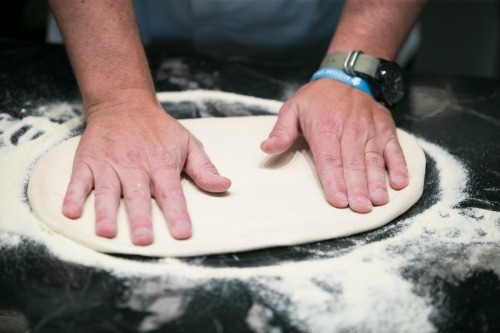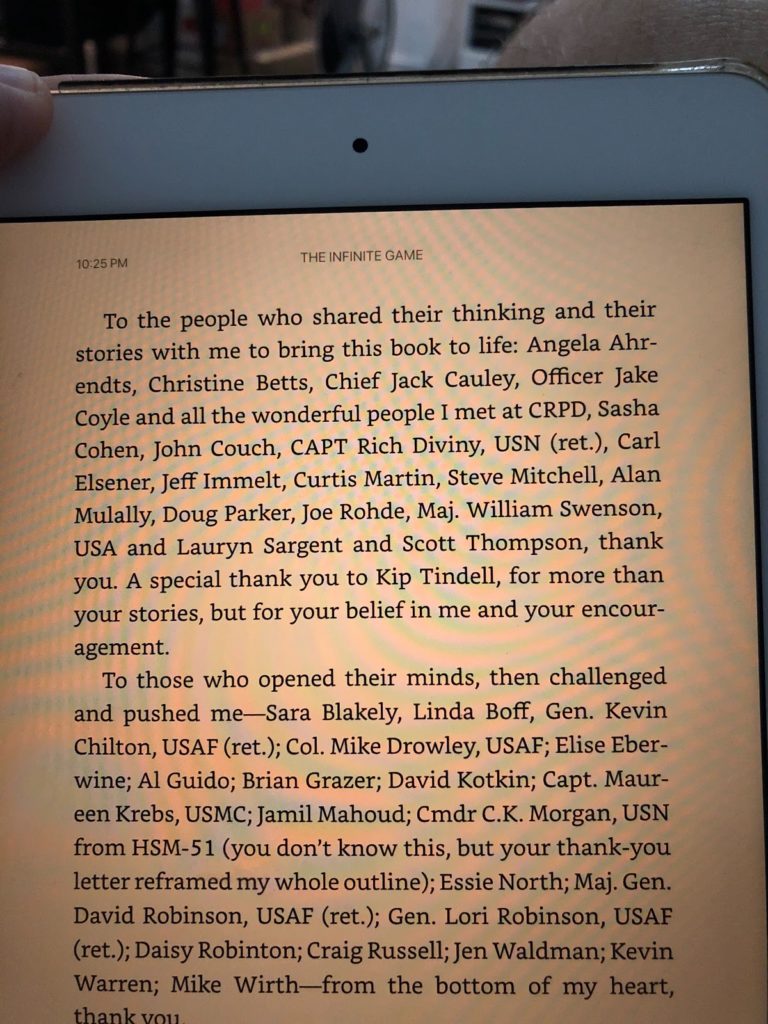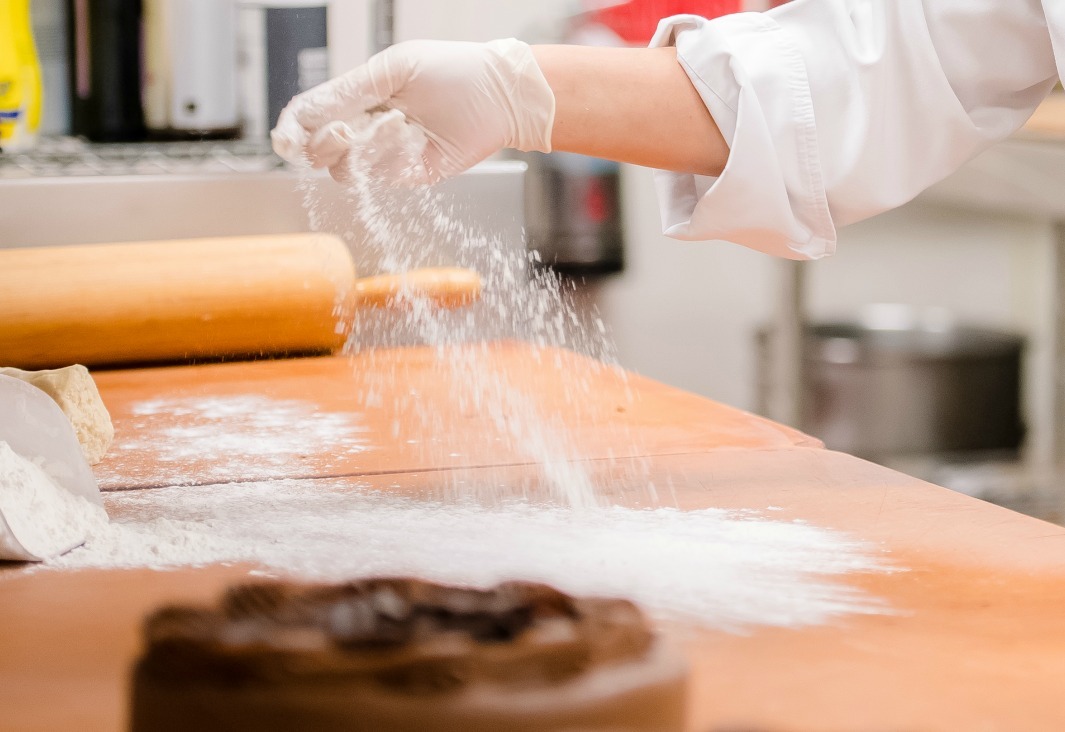Leadership story: Leading with an infinite mindset
Inspired by Simon Sinek’s The Infinite Game and King Arthur Flour’s Covid-19 response, Stories Inc. co-founder and partner Scott Thompson examines leading with an infinite mindset.
With many people turning to baking as a source of comfort during the Covid-19 lockdown, King Arthur Flour flew off of grocery shelves so quickly that many customers were not able to get their hands on it.
In the face of the pandemic, the company decided to focus on solving one problem: how to get more all-purpose flour to customers. They wanted to massively ramp up their production of flour without endangering their employees (who they call “employee-owners”). And, they did not want to compromise the level of care and quality that’s kept King Arthur Flour in business since 1790.
Resilience during a crisis
Prior to reading the King Arthur Flour story, I had just finished reading The Infinite Game by Simon Sinek, which felt incredibly timely (and was our April book club pick). Published a few months before the Covid-19 crisis, the book provides a leadership framework around using an infinite mindset for success over the long run.
Playing an infinite game requires being resilient — not just stable — in the face of a crisis. Thus, several of the case studies in the book center around how companies responded to crises, including 9/11 and the Great Financial Crisis in 2008. One of my favorites was the story of Victorinox. Knives, including Swiss Army Knives, made up 95 percent of Victorinox’s revenue before 9/11, and they were suddenly banned from carry-on luggage after the attack. Naturally, demand plummeted, but the company viewed the challenge as an opportunity to evolve. Without laying anyone off, the company diversified its product line to travel gear and watches, eventually doubling revenues.
It was fascinating to read the book’s case studies during the current global crisis. As a result, I could see see how leaders responded, with either finite or infinite mindsets, to the Covid-19 pandemic.
King Arthur Flour’s Infinite Mindset
The King Arthur story is another real-time case study of (what seemed to be) an infinite-minded company taking on a crisis. Granted, overwhelming demand for their product is a much better challenge to have than zero demand. But, it did present serious challenges nonetheless.

Let’s look at King Arthur Flour through the lens of The Infinite Game to see why (spoiler) the company was so well prepared to face the challenge brought about by the pandemic.
1. King Arthur Flour prioritizes the will of its people over resources.
According to Sinek, will “encompasses morale, motivation, inspiration, commitment, desire to engage, desire to offer discretionary effort and so on.” However, resources usually refers to money or money-related metrics. “Infinite-minded leaders…work hard to look beyond the financial pressures of the current day and put people before profit as often as possible,” writes Sinek.
As a 100 percent employee-owned company, King Arthur Flour has baked (yes, pun intended) the prioritization of will over resources (i.e. people over profits) into its corporate ownership structure.
The idea of ‘people over profits’ prevailed immediately once the pandemic arrived. The closure of many local bakeries meant that one of King Arthur Flour’s largest revenue streams—and, thus, the corresponding production line—was shut down. Many finite-minded companies would have reacted by laying off team members to counteract the loss in revenue. King Arthur Flour didn’t lay anyone off.
Many of those whose jobs couldn’t be performed at home were trained to help out with tasks that could. So far, not a single [King Arthur Flour] employee has been furloughed; everyone is being paid — including 12 employees who stay busy sewing masks for other employees.
— David H. Freeman
“Inside the Flour Company Supplying America’s Sudden Baking Obsession”
2. A trusting environment fosters cooperation and innovation.
“The best way to drive performance in an organization is to create an environment in which information can flow freely, mistakes can be highlighted and help can be offered and received,” Sinek writes. “In short, an environment in which people feel safe among their own.”
King Arthur’s trusting environment becomes apparent in the second paragraph of the story, with the Baker’s Hotline representative who would, prior to Covid, put callers on hold while she yelled over cubicle walls to her colleagues for a second opinion.
The free flow of information at King Arthur Flour enabled the company to embrace social media and video effectively (it has 500,000+ Instagram followers compared to its competitor’s 3,300). In the time of Covid, that’s translated to two new YouTube baking shows, “Isolation Baking” and “Martin Bakes at Home.” I find that level of innovation amazing for a 230-year-old flour milling company.
3. Leaders must clearly communicate the mission — the Just Cause.
In The Infinite Game, Sinek suggests that leaders should fill the role of Chief Vision Officer, “the holder, communicator, and protector of the vision. Their job is to ensure that all clearly understand the Just Cause and that all other C-level executives direct their efforts to advancing the Cause inside the organization.”

Reading the King Arthur story, it’s clear that at least one of its CEOs (maybe both) understands their role as CVO. As the demand for their flour began to surge, the company formed a crisis response team, staying in touch multiple times per day. “The first thing we had to do was agree on what we could accomplish,” says Co-CEO Karen Colberg. “During a crisis there are a lot of problems to solve, and you won’t be able to solve them all. We decided the one we had to solve was how to get more all-purpose flour to consumers.”
King Arthur’s mission is “Spreading the joy of baking,” and they would be failing on that mission if customers continued having trouble finding any of their flour.
Prepared with the infinite mindset
As the article outlines, there was a lot that had to be coordinated to ramp up production in a meaningful way (changing over production lines, bringing in contractors, redirecting shipments, etc.). Without a clear articulation by leadership of the company’s singular priority during the crisis—which came right from its mission—it would be easy for all of these moving parts to cause people to trip over each other.
Clearly, King Arthur was well-prepared for the needed ramp-up of production. They tripled production of all purpose and bread flour to about 7 million bags, and while there’s still more to be done to catch up to demand, you get the sense that they’ll weather the crisis just fine. But more importantly, by having an infinite mindset prior to the Covid crisis, King Arthur will do much better than just “weather the crisis” — they’ll come out of it with an even stronger business. They’ve continued “spreading the joy of baking,” without sacrificing the quality of their product or endangering their people.
P.S.
Reading the King Arthur story made me think of the resilience the Stories Inc. team has shown during this crisis. Our flagship service offering involved visiting organizations and interviewing team members in person. With the pandemic rendering that impossible for at least the near term, the full team collaborated to create an experience in which we could apply our methodology virtually to support distributed teams. It’s called Virtual Story Sessions. I encourage you to check it out — the team put in a lot of thought about how to create a great storyteller experience, which in turn allows us to uncover great stories from leaders to front-line employees.
P.P.S.
At a conference Lauryn and I attended, we had pointed Simon Sinek to the story of one of our CVS Health storytellers, and he ended up including it in his chapter on “The Courage to Lead.” We highly recommend the book, and not just because we received a nice acknowledgment from Simon in the book!


